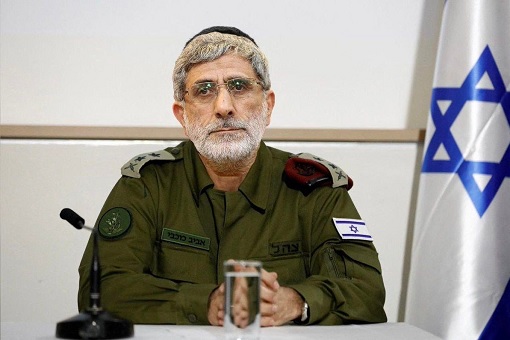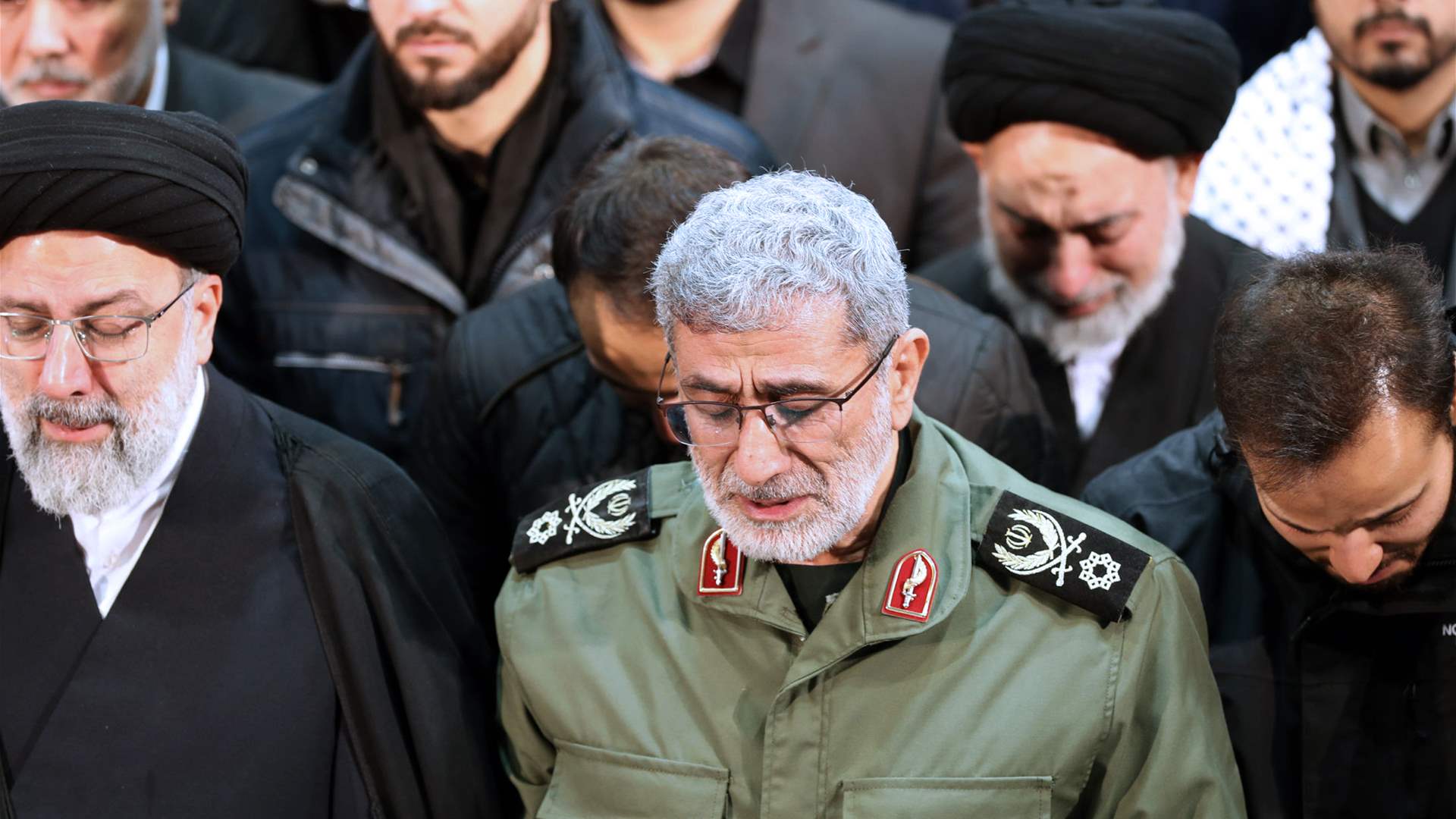
Iranian Quds Chief Esmail Qaani
In a shocking twist that has sent ripples through the geopolitical landscape, Iranian Brigadier General Ismail Qaani, head of the elite Quds Force, has been accused of working as an agent for Mossad, Israel’s national intelligence agency. The gravity of these allegations reached a new level when reports surfaced of his recent arrest by Iranian security forces.
Iran’s leadership and the military establishment have been deeply shaken by this revelation, especially considering Qaani’s crucial role in spearheading Iran’s operations in the Middle East following the assassination of General Qasem Soleimani. But how did Qaani get traced, what concrete evidence links him to Mossad, and what does this mean for the future of the Quds Force and Iran’s regional influence?

The Arrest: How Qaani Was Traced and Captured
According to Iranian security sources, Qaani had been under covert surveillance for several months before his arrest. Iran’s counter-intelligence services allegedly initiated the investigation by intercepting encrypted communications linked to Mossad.
These communications reportedly included instructions that were being relayed to a high-ranking Iranian official within the Revolutionary Guard. The discovery of this breach triggered an intensive internal investigation, which culminated in Qaani being placed under scrutiny.
In a covert operation, Iranian intelligence agencies tracked Qaani’s movements and communications, using advanced surveillance techniques, including cyber monitoring and intelligence-gathering operations within his inner circle.
Sources indicate that Qaani’s multiple suspicious trips to neutral countries such as Turkey and Azerbaijan, disguised as diplomatic missions, raised concerns. Mossad agents operating out of these regions allegedly coordinated these trips.
In late September, Iranian security forces arrested Qaani in Tehran after intercepting one final exchange of intelligence that linked him directly to Mossad operatives. The arrest was kept secret initially, likely to prevent mass upheaval within the IRGC and to allow time for a controlled internal investigation.
Concrete Evidence: What Links Qaani to Mossad?
While Iran has yet to publicly disclose all the details of its investigation, several pieces of evidence have emerged from unnamed security officials and Iranian media outlets. Among the most damning evidence:
- Encrypted Messages: Intelligence operatives reportedly intercepted highly classified messages between Qaani and Mossad officials. These messages were decoded and confirmed to be intelligence exchanges regarding Iran’s regional military strategies, particularly those involving Iraq, Lebanon, and Syria. An elaborate network of middlemen and covert agents masked Qaani’s communication with Mossad.
- Financial Transactions: Investigators reportedly uncovered suspicious financial transactions in offshore accounts tied to Qaani. Mossad is believed to have paid these funds in exchange for Qaani’s intelligence services. The trail of money led through complex networks of shell companies in countries like the UAE and Cyprus.
- Operational Leaks: Military strategies that were once closely guarded within the Quds Force began to leak, leading to Israeli preemptive strikes on Iranian-backed forces in Syria and Iraq. Israeli intelligence consistently outpaced Iran’s plans, resulting in an internal suspicion of a high-level mole within Iran’s leadership. These repeated operational failures became a key piece of evidence that eventually pointed back to Qaani.
- Captured Mossad Agents’ Testimony: Iranian intelligence reportedly interrogated captured Mossad agents, some of whom implicated Qaani directly in espionage activities. These operatives, arrested in separate incidents over the last year, provided detailed accounts of how Mossad recruited and handled Qaani, including code names, meeting locations, and communication methods.
Assisting Mossad: The Role in Assassinations
One of the most damning pieces of evidence that emerged during the investigation was Qaani’s suspected involvement in the assassination of Ismail Haniyeh and Hassan Nasrallah.
- Ismail Haniyeh’s Assassination: While the circumstances surrounding Haniyeh’s death remain murky, Iranian intelligence reportedly uncovered communication between Qaani and Mossad operatives that outlined Haniyeh’s travel movements, security weaknesses, and strategies. The Mossad’s eventual assassination of Haniyeh became an integral part of its larger strategy to destabilise Iranian-backed groups in Gaza and diminish Iran’s regional influence.
- Hassan Nasrallah’s Assassination: Qaani is also alleged to have provided Mossad with key intelligence on Nasrallah, including his hideouts and operational command centres in Lebanon. The incident led to Nasrallah’s demise, a blow to Hezbollah and its proxy operations across the region, further isolating Iran’s influence in Lebanon.
Another Iranian General Under Scrutiny
The Fate of Qaani: What’s Next?
The arrest of a figure as prominent as Qaani is unprecedented in modern Iranian history, and the implications are profound. If the accusations of Qaani being a Mossad agent prove true, his fate will almost certainly involve a swift and harsh punishment, likely leading to his execution. Iran has never tolerated espionage, especially from such a high-ranking official who was trusted to lead the nation’s most elite force.

Qaani’s arrest will likely cause instability within the IRGC leadership. Filling the Quds Force leadership role will be challenging. The new leader will face pressure to restore the force’s credibility. They must also reassure Iran’s allies and proxy groups.
This scandal could weaken Iran’s regional influence abroad. Israel and its allies might exploit Iran’s internal turmoil. Iranian-backed groups in Syria, Lebanon, and Yemen could lose support. Such developments may shift the regional balance of power. The arrest could trigger more purges within the IRGC.
Iran’s intelligence community may also face sweeping investigations. Leaders will seek to remove any remaining spies. Such actions could create mistrust within the ranks. Iran’s security apparatus may suffer short-term instability.
Conclusion
The claim that Ismail Qaani was a Mossad agent has moved beyond conspiracy. It has now led to his arrest. Evidence has begun linking him to Israeli intelligence operations. The fallout from this scandal will be massive for Qaani. Iran’s entire military establishment could also face serious consequences.
The investigation has expanded to other senior officials. The Quds Force, once untouchable, now faces profound uncertainty. Iran’s military leadership future hangs in the balance. The coming weeks will be critical for the country’s response. The latest incident is an unprecedented breach of trust in Iran’s history.
References
- India Today – indiatoday.in
- Hindustan Times – hindustantimes.com
- Ynet News – ynetnews.com
- Jerusalem Post – jpost.com
- JFeed – jfeed.com









